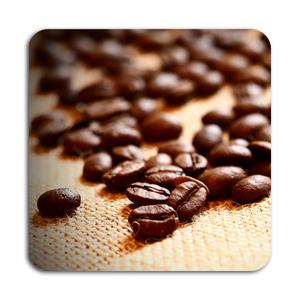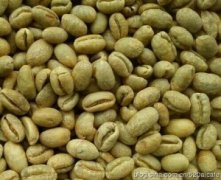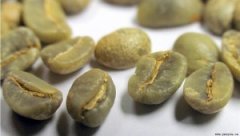[coffee beans] Java coffee beans in Indonesia
Java coffee, English name java coffee, also translated as java coffee.
Java coffee (java coffee) planting distribution
Java coffee beans (coffee powder) belong to: Robasta (Robusta) varieties, mainly distributed in African countries such as Cote d'Ivoire, Angola, Madagascar and the Philippines, Vietnam and Indonesia (Java) and other places.
Java coffee growing environment and main producing areas
Robusta is cultivated in lowlands, resistant to high temperature, drought, rain, pests, adaptability is very strong, can grow very well in the flat, harvest does not necessarily need artificial, can be completely carried out with vibration machines.
Robusta coffee, which is commonly used in blending, has two main types: A. P. Robusta and W.I.B.Robusta.
Except for W.I.B. particles are larger, the rest of the particles are smaller, the biggest difference lies in the processing after harvest, so there are certain differences in appearance, aroma and taste.
Origin: Indonesia Java, Indonesia.
Grade or breed: W.I.B.& A.P.。
Indonesia was the first colony to grow coffee trees. Indonesia's archipelago is the world's largest producer of Robusta beans. This is called high-quality Arabica beans, such as Java and Sumatra.
Java: coffee bean species-Robusta
Sumatra: coffee bean species-Arabica
History of Java coffee (Java Java coffee)
The Dutch first introduced coffee to Central and South America in the 1820s. Coffee spread from Dutch colonies to Guyane française and Brazil, and during Dutch colonization they grew coffee in Malabar, India, and in 1699 brought coffee to what is now Batavia, Indonesia (Java). The Dutch colonies were once the main suppliers of coffee to Europe. Indonesia is currently the fourth largest coffee exporter in the world.
Later brought to Jamaica by the British. By 1925, coffee cultivation had become a tradition in Central and South America. That same year, coffee was grown in Hawaii, the only coffee producer in the United States, and Hawaiian coffee is one of the best in the world.
At present, 90% of Indonesia's coffee beans exported are Robusta beans, only 10% are Arabica. Before 1920, due to a major environmental disaster, Indonesia's coffee varieties were replaced by Robusta beans. Therefore, Sumatra's Mantenin coffee is a rare Arabica bean, which is a treasure before the discovery of Blue Mountain. Such genuine production is also very small.
Java has a unique position among Indonesian coffee. Java coffee cultivation began as early as the Dutch colonial period, and until the 1920s Java coffee was recognized as a world-class coffee, unique wet processing methods, and unique Java iron Bika coffee, IJEN volcanic ash landscape, excellent altitude above 4500 feet, and a long history of professional large coffee plantations, these factors make Java coffee outstanding quality.
Java-Pancoer
Country of manufacture: Indonesia
Level: None
Growing area: East Java
Brand: Pancoer Village
Treatment method: wet treatment
Appearance: 2 d/300gr, 17-18SCR
Breed: Java Tiebika
Note: High fat content, delicious bitter sweet chocolate flavor, low acidity and nutty aftertaste are all characteristics of this coffee. This is an excellent Java coffee, simple and clear taste and excellent aftertaste to love.
Dry aroma (1-5): 3
Wet aroma (1-5): 3.4
Acidity (brightness)(1-10): 7.8
Taste (layering)(1-10): 8.6
Taste (body)(1-5): 4.5
Aftertaste (Residue)(1-10): 8.6
Balance (1-5): 0
Base Points (50):50
Total score (max. 100):86.1
Strength/Main Attributes: Medium Strength/Fresh Tobacco Leaf, Soil, Herbs, Rich in Oil
Recommended baking level: full city
Comparison: Java coffee differs from other Indonesian semi-washed coffees in that it has a higher acidity and is more similar to East Timor or Papua New Guinea coffee

Important Notice :
前街咖啡 FrontStreet Coffee has moved to new addredd:
FrontStreet Coffee Address: 315,Donghua East Road,GuangZhou
Tel:020 38364473
- Prev

[coffee beans] Caribbean Dominica Santo Domingo coffee beans
Dominica Dominica: Santo Domingo coffee taste characteristics: fresh and elegant, full particles, excellent acidity, pleasant flavor. The Dominican Republic is located in the east of the island of Haiti in the West Indies, bordering the Republic of Haiti to the west, the Atlantic Ocean to the north and the Caribbean Sea to the south. With an area of about 49000 square kilometers and a population of 7.1 million, the Dominican Republic and the Republic of Haiti coexist in
- Next

Home-grown coffee, pay attention to the price of Chinese coffee, Yunnan small coffee beans
Yunnan small-grain coffee is a kind of beverage crop with high economic value, which is called the three largest beverages in the world with cocoa and tea, and its output and consumption ranks first among the three beverages. Coffee is rich in protein, fat, sucrose, starch, glucose, caffeine and other substances, rich aroma and delicious taste. Coffee is a perennial evergreen shrub or small tree of the genus Coffea of Rubiaceae.
Related
- Guji coffee producing area of Guji, Ethiopia: Humbela, Shakiso, Wulaga
- What is the most expensive variety of Qiloso in BOP multi-variety group?
- How to store the coffee beans bought home?
- Why are Yemeni coffee beans so rare now?
- Ethiopian Sidamo all Red Fruit Sun Sun Santa Vini Coffee beans
- SOE is mostly sour? What does it mean? Is it a single bean? what's the difference between it and Italian blending?
- Is Italian coffee beans suitable for making hand-brewed coffee?
- How to choose coffee beans when making cold coffee? What kind of coffee beans are suitable for making cold coffee?
- Just entered the pit to make coffee, what kind of coffee beans should be chosen?
- Can only Japan buy real Blue Mountain Coffee? What are authentic Jamaican Blue Mountain coffee beans?

